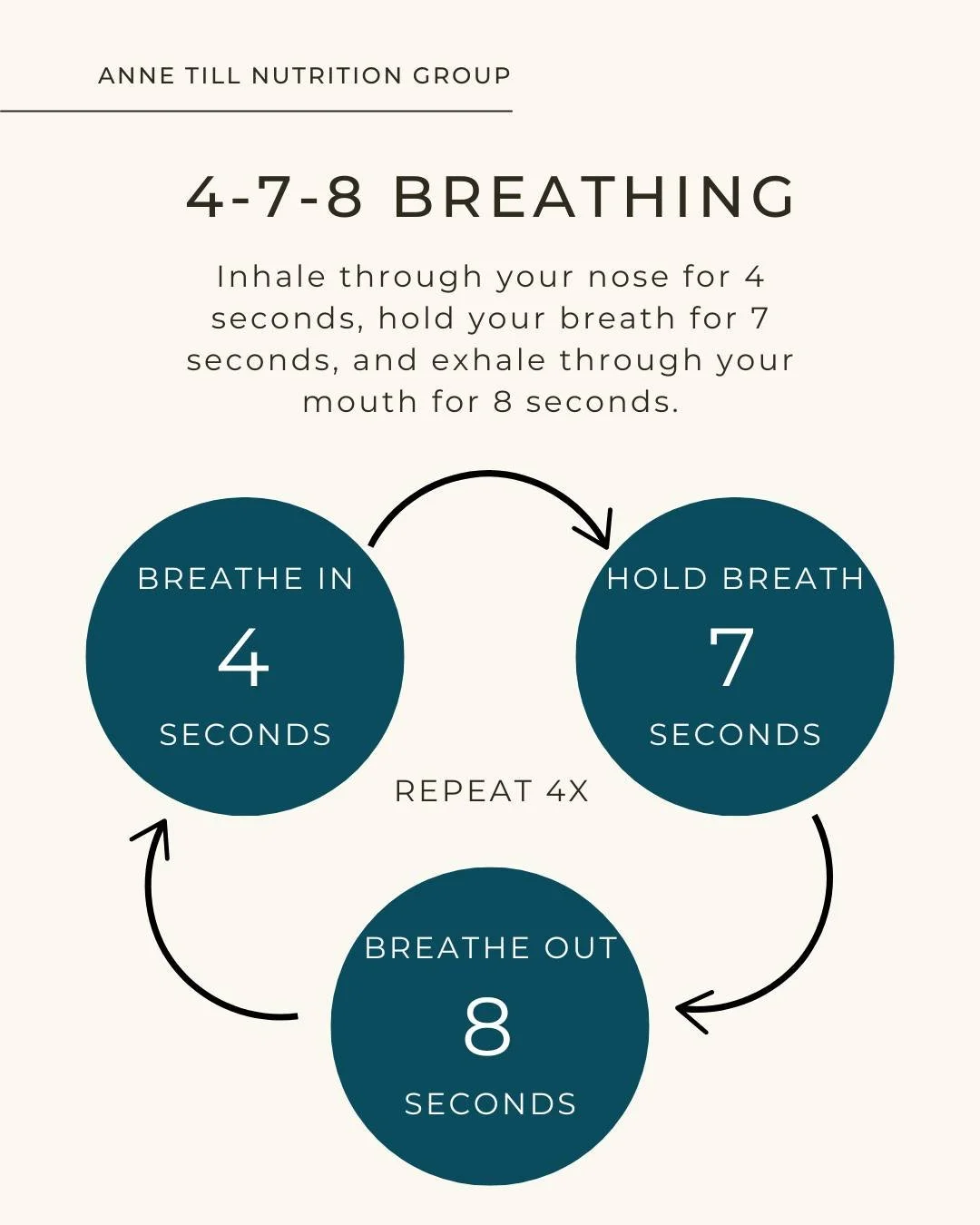8 Symptoms That Make You Feel Crazy But Could All Be Signs Of High Cortisol
by The Candidly Team
If you’re a fan of TikTok, you might have been hearing lately that every symptom under the sun is a sign you have high cortisol.
Your puffy cheeks (“cortisol face” as TikTok calls it). Your snappiness at your spouse. Your inability to lose an ounce of weight in your lower abdomen.
Image: Parks and Recreation | NBC
It’s one of those things that sounds feasible. After all, cortisol is commonly known as the “stress hormone,” and we’re constantly being warned of the medical dangers of stress. Not to mention, about a third of U.S. adults say their stress is completely overwhelming on most days. Most.
But, of course, there’s more to the story than what TikTok tells us. For one thing cortisol is an “essential hormone that affects almost every organ and tissue in your body,” writes The Cleveland Clinic. Yes, it helps regulate your body’s stress response, making you alert and ready to react at signs of danger, but it also regulates your metabolism and blood sugar, controls inflammation levels, influences blood pressure, and helps control your sleep cycle. Too much of it on a consistent basis can indeed wreak havoc on all these systems and hurt our health. In rare cases, it can even lead to something called Cushing syndrome, which is where that puffy cheeks symptom actually comes from.
In many cases, our symptoms very likely have nothing to do with cortisol and should 1000% be talked about with our doctor to determine what is at their root. Diagnosis by TikTok remains ill advised.
However…
We still know stressing is bad for our health and that we are categorically doing too much of it. And we still want to understand both what elevated cortisol does to our bodies and what we can do about it.
So let’s start with some the very annoying and noticeable things that could be signs that our cortizol levels might be high.
Possible Signs Of High Cortisol
Like we said, all the symptoms we’re about to mention could be attributed to other things and many of them are not uncommon for women during their perimenopausal and menopausal years. So while this is not a diagnosis, it’s still important to illuminate, maybe even incentivize our efforts to bring down stress.
1. You’re stressed or feeling down.
We’ll start with the obvious. Chronic stress might lead to both anxiety and depression. It could also cause other health problems that can contribute to depression.
2. You’re inconveniently hungry waaaaay too much of the time.
Stress eating is real, and so is turning to sugary comfort food to try to temporarily relieve said stress. One study even showed that those who responded to stress with high cortisol levels were more likely to snack in the face of life’s hassles than those with low cortisol.
3. Your skin is breaking out like a teenager.
Like stress eating, stress acne is also real. Higher cortisol levels can lead to increased oil (sebum) production and thus, more breakouts.
4. You’re exhausted but can’t seem to sleep well.
Cortisol is designed to spike and wane throughout the day and night. But when the waning part doesn’t happen, elevated cortisol could potentially mess with our ability to sleep soundly and enough.
At the same time, some studies have suggested that losing sleep might lead us to experience higher cortisol levels the next day. It’s a cycle that studies are still figuring out, but the toxic relationship between stress and sleep is one many of us can document in our own lives near-daily.
5. You’re on a razor’s edge with irritability.
Do you want to start a new solo life in a New England lighthouse every time someone in your household adds a yogurt carton to the already overflowing trash can? Cortisol could be to blame. Or maybe it’s that no one but us takes out the trash. In any case, if our cortisol is high, we might have big reactions to small irritations and inconveniences.
6. You can’t focus and feel foggy.
High levels of cortisol have been associated with having a hard time concentrating or remembering. This can also be a result of all that sleep we lost from stressing.
7. You’re getting sick more often.
Stress can put a hit out on our immune system. “Over time, when your body reaches chronic stress, your body can get used to having too much cortisol in your blood. And this opens the door for more inflammation,” according to immunologist Leonard Calabrese, DO of the The Cleveland Clinic.
8. You’re rarely in the mood.
Yep, it can diminish sex drive. Feels a bit, duh. But still true.
Ways To Lower Your Cortisol
Now for the big question. What can be done to help keep our cortisol from staying high for too long? We’ll start with nutrition then move on to the lifestyle things.
Foods that can help:
Whole Fruit and Vegetables: What doesn’t this help with?
Black and Green Tea: The Brits may be onto something. Drinking tea has been linked to lowering cortisol.
Prebiotics and Probiotics: Think yogurts and fermented foods. These can contribute to a healthy gut, which helps with mental health, including, of course, stress.
Dark Chocolate: Stick to 1oz and make it extra dark.
Water: Dehydration can sometimes elevate cortisol levels. HERE’s how we trick ourselves into drinking enough water.
Lots and Lots of Fiber: Present in fruits and veg, whole grains, legumes and lentils. Go HERE for a fuller list.
Foods with Magnesium: Go HERE for a list.
Foods with Omega-3s: Go HERE for a list.
Foods to avoid or limit:
Added sugars
Refined grains
Saturated fats
Alcohol
Caffeine
The Lifestyle Stuff:
Sleep. You probably get very bored by being told to sleep enough. But like we said, sleep deprivation can increase cortisol, so finding a routine that allows you to get your rest is a huge step in terms of health.
Find yourself a breathing practice: Yoga. Mindfulness meditation. All of it is good, possibly life and health-transforming stuff. Even just doing 4-7-8 breathing when stressed, in which you breathe in through your nose for 4 seconds, hold your breath for 7 seconds, and release for 8 seconds through your mouth can bring down stress hormone levels.
Move your body: Commonly referred to as exercise. Walking is an incredible tool. No surprise that yoga has been proven to be of help. And while you might have heard that high intensity workouts spike cortisol more than low intensity or weight training, that’s also what gives you the energy and glucose available that your muscles need to complete said workout. And “research shows that once the workout ends, levels begin to fall quickly,” according to National Geographic.
Get your nature fix. This comes from The Cleveland Clinic, which points to getting yourself into fresh air and green space as ways to lower cortisol.
As you can see, it’s pretty much the usual suspects and health principles that help keep our stress hormones from haunting us. But if you’re concerned and experiencing any of the following symptoms, it could be a sign of Cushing’s syndrome, according to the Mayo Clinic:
Weight gain in the trunk.
Facial weight gain
Fatty hump between your shoulders
Pink/ purple stretch marks appearing
Bruising easily - a sign of thin skin
Wounds healing slowly
Acne
Hair growth on the face and body
Irregular periods
If you’re experiencing these or really any symptoms that feel like they could be a sign of high cortisol, talk to your doctor. We know we sound like your mom.
And we don’t mind.
This article is for informational purposes only. It is not intended to be used in place of professional advice, medical treatment, or professional care in any way. This article is not intended to be and should not be a substitute for professional care, advice or treatment. Please consult with your physician or healthcare provider before changing any health regimen. This article is not intended to diagnose, treat, or prevent disease of any kind. Read our Terms & Conditions and Privacy Policy.
















